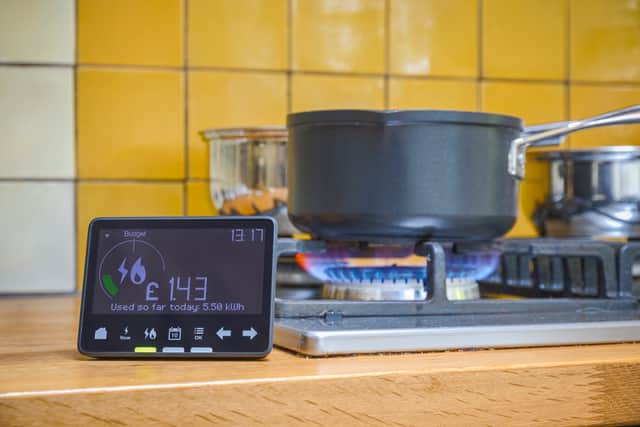Cost of living: Energy bill savings of up to £1150 with these heating system tweaks according to boiler expert
This article contains affiliate links. We may earn a small commission on items purchased through this article, but that does not affect our editorial judgement.
and live on Freeview channel 276
As the temperature around the country remains very close to freezing, many of us will be wanting to put our heating on more. Concerns over rising heating bills however will deter many away from this.
The week ahead is set to be bitterly cold, with ice and snow causing disruption to areas across the UK. With overnight temperatures expected to remain below zero across large parts of the country, saving money on heating bills has never been more important.
Advertisement
Hide AdAdvertisement
Hide AdAndy Kerr, founder of boiler installation company BOXT, has outlined how people can save over £1,000 a year on their bills. Depending on the efficiency rating of your current boiler and the type of home you live in, you could save up to £840 a year on your energy bills simply by upgrading to a new A-rated boiler – without changing the way you use it.
According to Mr Kerr, this, combined with the energy saving technology in the Google Nest Learning Thermostat, he estimates could save consumers up to £1,150 per year. Here is the full range of tips to help you save money on energy bills this winter including making sure you have a fit and healthy boiler.
Service your boiler and make savings
As well as ensuring your boiler manufacturer warranty remains valid, having a regular boiler service enables it to run as efficiently as possible, as well as helping to prolong its lifespan, keeping your energy bills low and not paying out for a new boiler for even longer.
Programme your boiler
Research, undertaken by BOXT, found only 27.3% of people schedule their boilers, meaning their boilers are unlikely to be operating as efficiently as possible, and homes won’t be maintaining the optimum comfortable temperature.
Advertisement
Hide AdAdvertisement
Hide AdInvesting in a smart thermostat such as the Google Nest Learning Thermostat, gives you full control over the temperature of your home from wherever you are. Even if you don’t have a smart thermostat, still ensure you make full use of the thermostat controls in your home to programme your boiler to only come on when you need it.
Use a smart meter
Smart meters can help you better understand your energy usage via the in-home display. With more information on your day-to-day energy use, you can see when you’re using the most energy, and identify ways to cut back and in turn save money. Data from Google suggest that you can save up to 16% annually on your energy bills by using a Nest Learning Thermostat. With the rising cost of living, smart meters can help to eliminate inaccurate bills, as they feedback directly to your energy supplier.
Use thermostatic radiator valves to control the temperature room by room
Installing thermostatic radiator valves and using them alongside your thermostat could save £75 per year according to the Energy Saving Trust. They recommend using the thermostat to control the heat in your main living space and using thermostatic radiator valves to lower the heating in rooms you don’t use as often.


Keep the boiler on, even if you’re away
To prevent frozen pipes, which can cause hundreds of pounds of damage, the Energy Saving Trust recommends you leave the heating on to some degree during winter, even if you’re not there. Check your home insurance policy before you go away. The rule of thumb is to keep your heating at a minimum of 12 degrees, rather than switching it off completely.
Advertisement
Hide AdAdvertisement
Hide AdUse insulation to make sure no heat is being wasted
In addition to wall, roof and floor insulation keeping the heat in your home, insulating your water tank, pipes and radiators is a quick and easy way to improve efficiency; saving energy and therefore money. With options such as a hot water cylinder jacket, which you can fit yourself and only costs around £15, you can quickly start making improvements. Plus, with the Government announcement of 0% VAT on energy-saving materials like insulation until 2027, now is a great time to invest.
